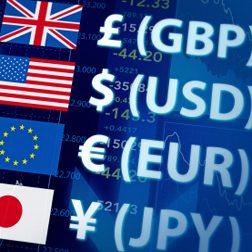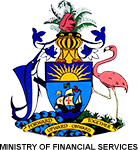Relaxation of Exchange Controls Scheduled for February 2018
3 Jan 2018
Rates for the investment currency market will be reduced
 Last month the private sector hailed as a “tremendous move” the Government’s targeting of businesses through further exchange control relaxation that will take effect in February 2018.
Last month the private sector hailed as a “tremendous move” the Government’s targeting of businesses through further exchange control relaxation that will take effect in February 2018.
Prime Minister Dr. Hubert Minnis said the liberalisation will affect both capital investment and current account trade transactions. Bahamian-owned businesses will now be allowed to maintain operating deposit accounts, with up to $100,000 in foreign currency, at domestic commercial banks. “The buying and selling rates for the investment currency market will be reduced from 12.5 percent and 10 percent, respectively, to 5 percent and 2.5 percent respectively,” Dr. Minnis said.
“Residents will be able to fund investments at a lower rate of $1.05 Bahamian dollars to $1 dollar US, and to repatriate investment currency proceeds to the Bahamas at a rate of $1.025 to $1 US.”
The move is part of the Government’s agenda to rapidly deregulate and liberalise the Bahamian economy in a bid to generate increased GDP growth and job creation, in a recognition that its current business model is not working and needs an urgent overhaul – especially given the increasing pressure on the financial services sector and current taxation system.
The relaxation assists with the ‘ease of doing business’
It is also designed to improve the ‘ease of doing business’ by enabling Bahamian companies, especially small to medium-sized enterprises (SMEs), conduct international transactions more smoothly while also improving their cost/access to capital.
This will improve the financial competitiveness of Bahamian companies versus their foreign counterparts as this nation prepares to enter full World Trade Organisation (WTO) membership, and also help to attract foreign currency held abroad by local firms back home, thereby boosting the external reserves. The involvement of commercial banks also reduces the bureaucracy involved in getting Central Bank approval.
“That certainly makes the proposition more attractive,” said Edison Sumner, the Bahamas Chamber of Commerce and Employers Confederation’s (BCCEC) chief executive, of the reforms. “That will free up a lot more capital for those companies seeking to use that facility for investment purposes. Right, now capital is being tied up because of premium being paid to the Central Bank.”
Dr. Minnis said yesterday that upon application to the Central Bank, Bahamians and residents will be given approval to retain foreign currency-denominated deposits or investment assets currently held outside the Bahamas or to repatriate the facilities to the Bahamas and maintain the same in foreign currency.
“No penalties will be imposed on regularised accounts and investments. The owners of deposit facilities will be allowed to use the resources to finance domestic transactions without restrictions,” said Dr. Minnis, adding: “Prohibitions will exist against either funding or augmenting these facilities with proceeds converted from Bahamian dollars.”
Mr. Sumner added: “This is a tremendous move. It is a very positive move for the private sector business community. Even though the amount being allowed is only up to $100,000 it is still a good start because it is a facility we do not have in place now.
International trade will also be facilitated
“We started discussions on this with the Central Bank over a year ago, and also conducted a survey of the business community to get an indication from them on how much of an attraction it was for them to access these kinds of facilities.
“The fact that the Government is moving on this, and being able to liberalise exchange controls for investment purposes, is something we applaud. We think it is a good thing.”
Mr. Sumner continued: “Not only will the businesses be able to repatriate investments kept abroad, but also hold foreign currency accounts in the local commercial banks.
“This is going to be good for businesses, particularly those involved in trade – whether in goods or services – and those who may have vendors outside of the country who have to make payment to Bahamian companies.”
Local businesses will be able to be more competitive
Mike Maura, the Chamber chairman and Arawak Port Development Company (APD) chief executive, told Tribune Business: “The reality is that many Bahamians have foreign currency accounts outside the Bahamas. The fact that these accounts exist is not as much about confidence in the Bahamas as it is about ease of doing business and the global economy we now live within.
“Permitting Bahamians to hold foreign currency accounts in the Bahamas will likely lead to less currency held offshore. The ease of doing business will be facilitated from the Bahamian resident account.”
He added: “Historically if a Bahamian-domiciled business wanted to invest outside the Bahamas there was a 12.5 percent cost to export Bahamian capital. So, for example, if Arawak Port Development is bidding on a port in a different country and competing with foreign operators, APD would have a 12.5 percent cost that our competitors would not have.
“So the past 12.5 percent exchange control cost likely prohibits APD and other companies, seeking to grow and expand by exporting Bahamian ingenuity, from doing so. Reducing this exchange control cost at least provides APD and others with a new opportunity for growth and job creation.”
Source: The Tribune

